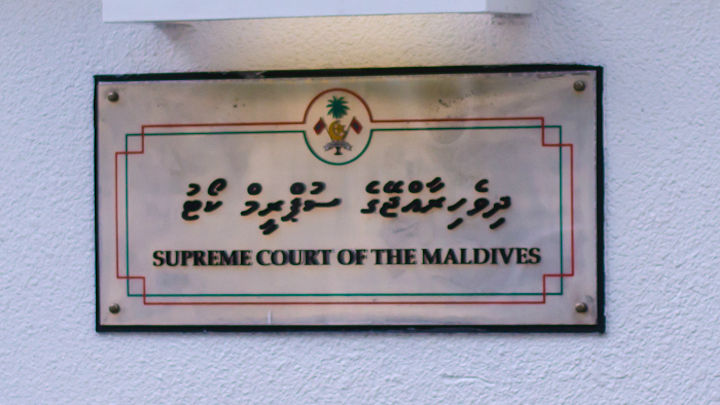Supreme Court to consider UN ruling on Nasheed’s imprisonment
“The government has maintained the position that the opinion of the UN Working Group on Arbitrary Detention is one that should be considered by the Supreme Court. This will now be done given that the Court has accepted the appeal already filed by the Prosecutor General, with substantive arguments to be heard at a later date,” the foreign ministry said today.

14 Dec 2015, 09:00
The Supreme Court will consider a UN human rights panel ruling on former President Mohamed Nasheed’s imprisonment when it hears the opposition leader’s appeal of his 13-year jail sentence on a terrorism charge, the foreign ministry said today.
In a statement welcoming Nasheed’s decision to file an appeal, the foreign ministry said that the government has “consistently maintained the position that the former president should seek to argue his complaints before the appropriate judicial body.”
“Further, the government has maintained the position that the opinion of the UN Working Group on Arbitrary Detention is one that should be considered by the Supreme Court,” the statement continued.
“This will now be done given that the Court has accepted the appeal already filed by the Prosecutor General, with substantive arguments to be heard at a later date.”
Become a member
Get full access to our archive and personalise your experience.
Already a member?
Discussion
No comments yet. Be the first to share your thoughts!
No comments yet. Be the first to join the conversation!
Join the Conversation
Sign in to share your thoughts under an alias and take part in the discussion. Independent journalism thrives on open, respectful debate — your voice matters.




